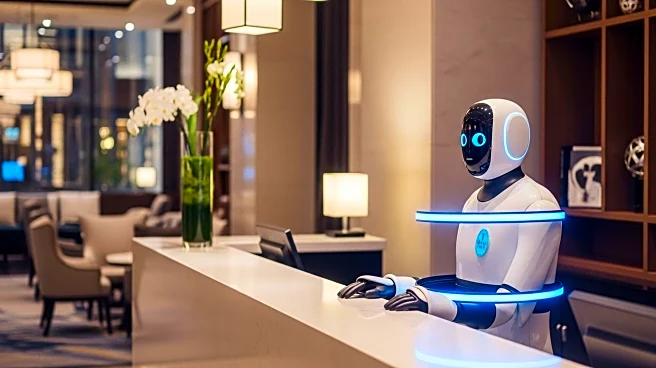What's Happening?
The hospitality industry is grappling with significant workforce challenges, characterized by high turnover rates and a shortage of skilled workers. Cynthia Hansen, Managing Director of the Innovation Foundation, discusses how social innovation can address these issues by reimagining jobs, expanding inclusion, and upskilling the workforce. The Foundation employs a three-step model: Scan, Build, Scale, to identify workforce gaps, develop solutions, and expand successful initiatives. This approach aims to connect untapped talent pools, such as women returners and youth, with hospitality roles, thereby addressing the industry's persistent workforce shortages.
Why It's Important?
The hospitality sector's workforce challenges have been exacerbated by the pandemic, with many workers leaving the industry and not returning. Social innovation offers a strategic approach to revitalizing the workforce by focusing on human-centered design and collaboration with industry stakeholders. By addressing barriers to employment and creating inclusive job opportunities, the industry can attract and retain a diverse workforce. This not only benefits the hospitality sector but also contributes to broader economic stability by reducing unemployment and underemployment.
What's Next?
As the hospitality industry continues to evolve, the adoption of social innovation practices could lead to significant changes in recruitment and workforce development. Industry leaders may increasingly collaborate with social entrepreneurs and foundations to implement scalable solutions. This could result in more inclusive hiring practices and the development of career pathways that enhance employee retention. The success of these initiatives could serve as a model for other industries facing similar workforce challenges.
Beyond the Headlines
The integration of social innovation in hospitality highlights the potential for systemic change in workforce management. By prioritizing skills and attitudes over traditional qualifications, the industry can tap into a broader talent pool and foster a more dynamic and adaptable workforce. This shift could lead to long-term cultural changes within the industry, promoting diversity and inclusion as core values.










